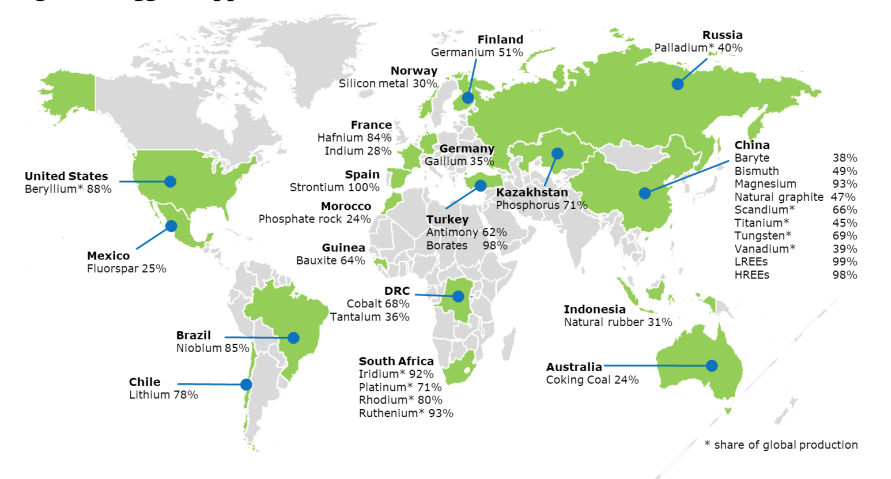The European Commission, the administrative arm of the European Union, has listed 30 “critical raw materials” that it wants to secure the supply of while at the same time avoiding becoming dependent on any of them.
The four new additions to the list are bauxite, lithium, titanium and strontium.
Lithium, a fundamental material in the manufacturing of batteries of all kinds, is increasingly gaining importance as more and more people buy electric cars.
The vast majority of cars today use petrol as fuel for their combustion engines. Petrol is derived from oil, and as a result, Europe – and the rest of the world – is heavily dependent on oil to keep its economy running smoothly.
Now, sales of new electric vehicles are growing faster than the sales of petrol cars, which means that, eventually, the majority of cars will be electric.

And there are alternatives to the lithium-based battery, such as the hydrogen fuel cell, right now, most people are buying lithium-ion battery-powered electric cars.
The EC has launched its Action Plan on Raw Materials, listing the following 20 materials as being “critical” to the future development of technologies and industries:
- Antimony
- Baryte
- Bauxite
- Beryllium
- Bismuth
- Borate
- Cobalt
- Coking Coal
- Fluorspar
- Gallium
- Germanium
- Hafnium
- Heavy Rare Earth Elements
- Indium
- Light Rare Earth Elements
- Lithium
- Magnesium
- Natural Graphite
- Natural Rubber
- Niobium
- Platinum Group Metals
- Phosphate rock
- Phosphorus
- Scandium
- Silicon metal
- Strontium
- Tantalum
- Titanium
- Tungsten
- Vanadium
The EC also produced a map (below) showing the top suppliers of raw materials on the list and emphasized the need to diversify away from dependency on one country so that the supply chain can be kept going.
Maroš Šefčovič, the EC’s vice-President for interinstitutional relations and foresight says: “A secure and sustainable supply of raw materials is a prerequisite for a resilient economy.
“For e-car batteries and energy storage alone, Europe will for instance need up to 18 times more lithium by 2030 and up to 60 times more by 2050.
“As our foresight shows, we cannot allow to replace current reliance on fossil fuels with dependency on critical raw materials. This has been magnified by the coronavirus disruptions in our strategic value chains.
“We will therefore build a strong alliance to collectively shift from high dependency to diversified, sustainable and socially-responsible sourcing, circularity and innovation.”
Thierry Breton, commissioner for internal market, says: “A number of raw materials are essential for Europe to lead the green and digital transition and remain the world’s first industrial continent.
“We cannot afford to rely entirely on third countries – for some rare earths even on just one country.
“By diversifying the supply from third countries and developing the EU’s own capacity for extraction, processing, recycling, refining and separation of rare earths, we can become more resilient and sustainable.
“Implementing the actions that we propose today will require a concerted effort by industry, civil society, regions and Member States. We encourage the latter to include investments into critical raw materials into their national recovery plans.”

The EC’s Action Plan on Critical Raw Materials is designed to:
- develop resilient value chains for EU industrial ecosystems;
- reduce dependency on primary critical raw materials through circular use of re-sources, sustainable products and innovation;
- strengthen domestic sourcing of raw materials in the EU; and
- diversify sourcing from third countries and remove distortions to international trade, fully respecting the EU’s international obligations.
Moreover, the EC wants to establish what it describes as a European Raw Materials Alliance, with particular emphasis on the rare earth and magnet value chains because “this is vital to most of EU industrial ecosystems, such as renewable energy, defence and space”.
It also wants to identify mining and processing projects in the EU that can be operational by 2025, as well as use its satellite-based earth-observation programme Copernicus to improve resource mining exploration and operations.

